Keeping a Real Christmas Tree Fresh Through the Holidays
How to keep a real Christmas tree fresh all season. From choosing the right tree to watering and cat-proofing your stand, here’s how to make your tree last.
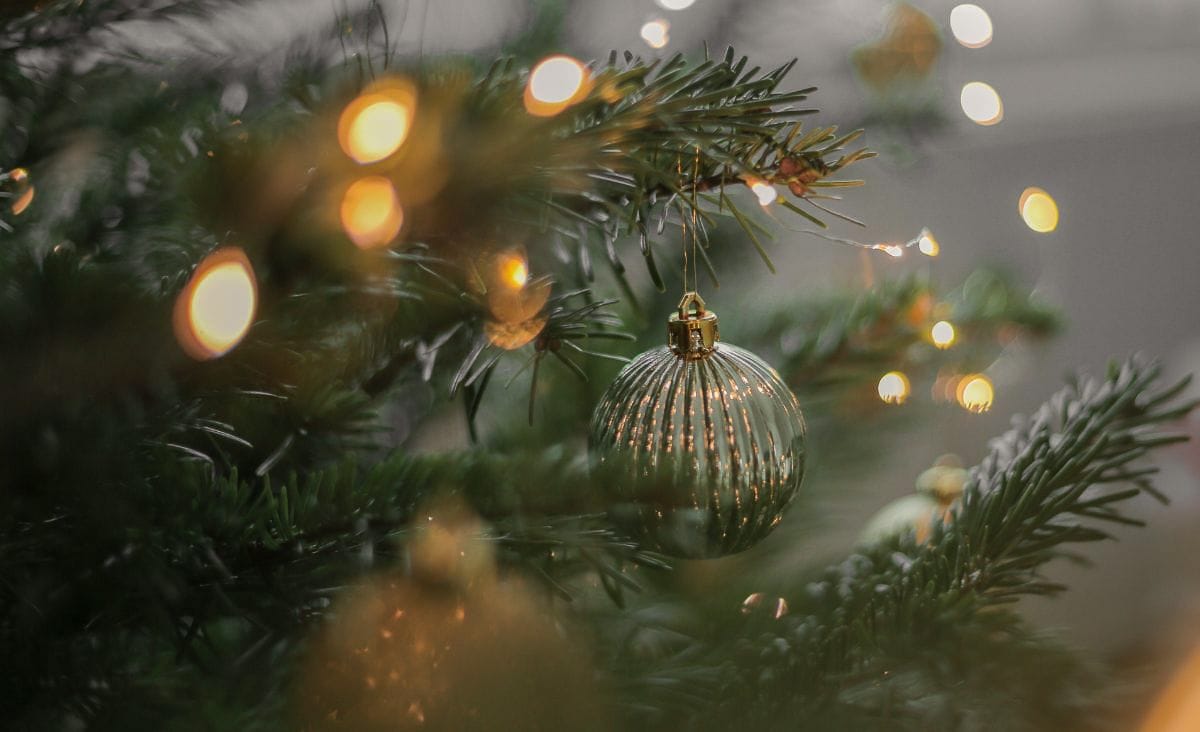
Walking in and getting that first hit of pine? That’s when it really feels like Christmas to me. But if your tree has ever turned crispy before the presents were wrapped, I feel your pain. I’ve had my fair share of drooping branches and carpets covered in needles before figuring out how to keep a tree alive and smelling good past Christmas morning.
Whether this is your first tree or your fiftieth, here’s how I do it, from picking it out to sweeping up the last needles. If you love handmade touches as much as I do, you’ll want to try these easy DIY crochet ornaments that look right at home on a real tree and stick around as keepsakes year after year.
How to Choose a Fresh, Healthy Christmas Tree
If you start with a dried-out tree, no amount of misting or sugar water will save it. The best tree is the one that’s still full of moisture when you bring it home.
How to Tell If a Tree Is Fresh
Run your hand along a branch. Needles should stay put, not fall off in clumps. The branches should feel flexible, not brittle. And don’t skip the sniff test. A strong pine scent usually means it’s still good and fresh.
If you can, buy your tree early in the morning or on a cool day. A few hours in the sun or a warm truck bed can dry a tree out before you even get it home.
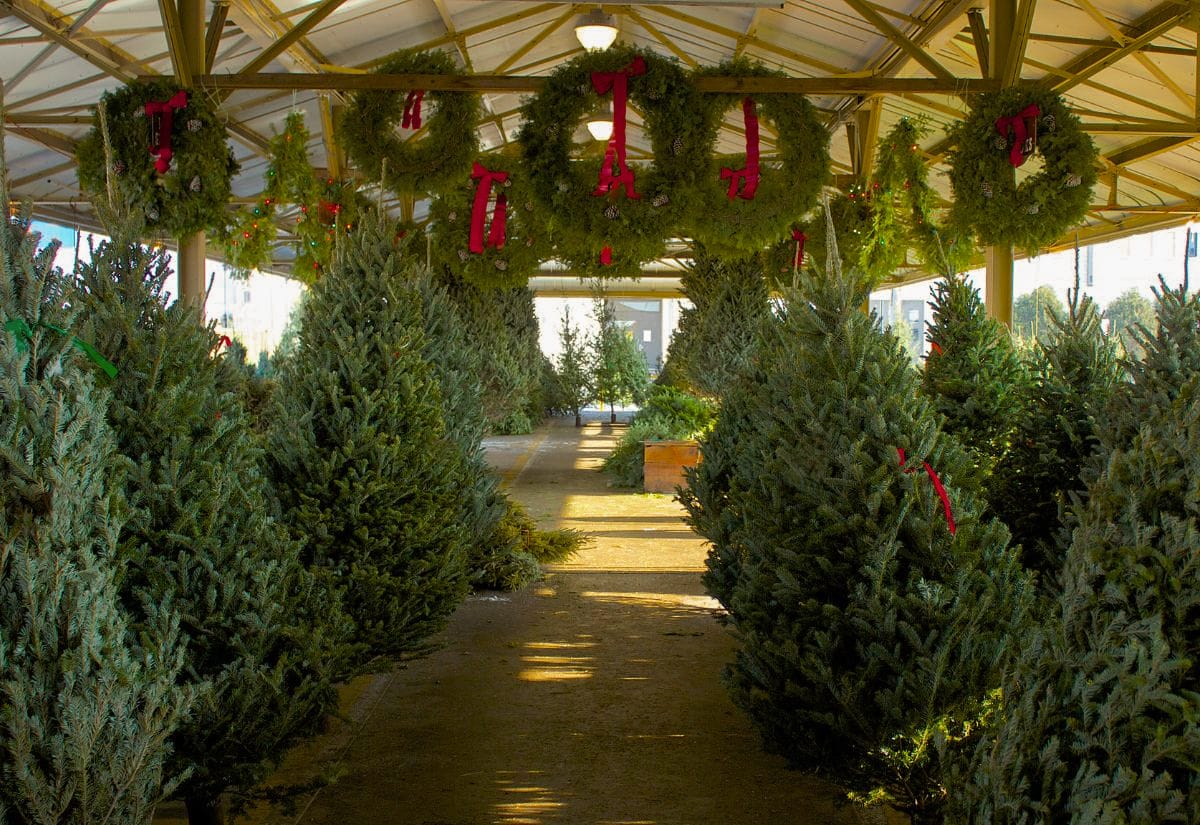
Which Tree Types Actually Last
Some trees handle indoor life better than others. Here’s what I’ve found over the years:
- Fraser Fir: My top pick. Excellent needle retention, rich color, and strong branches.
- Balsam Fir: Beautiful scent, softer branches, best for lighter ornaments.
- Douglas Fir: Fluffy and full, but it starts to sag if it dries out.
- Noble Fir: Sturdy, classic look and handles decorations well.
- White Pine: Pretty but delicate, best for minimalist decor.
- Scotch Pine: Practically indestructible and long-lasting.
- Spruce: It looks great at first, but it drops needles faster than you’d think.
When in doubt, go for firs. They usually last longest indoors.
Once you’ve picked your tree, make a night of decorating with a few budget-friendly crafts.
Prep Your Tree So It Actually Lasts
This is the part a lot of people mess up (I definitely did, back in the early years). Once a tree is cut, the base seals up fast and that stops it from drinking.
Make a Fresh Cut (Every Time)
Before bringing your tree inside, cut about ½ inch off the trunk. Even if the seller says they did it for you, do it again at home. If more than four hours pass between cutting and placing it in water, that sap has already sealed.
Use a sharp saw and cut straight across (no angles). That flat cut helps it take up water.
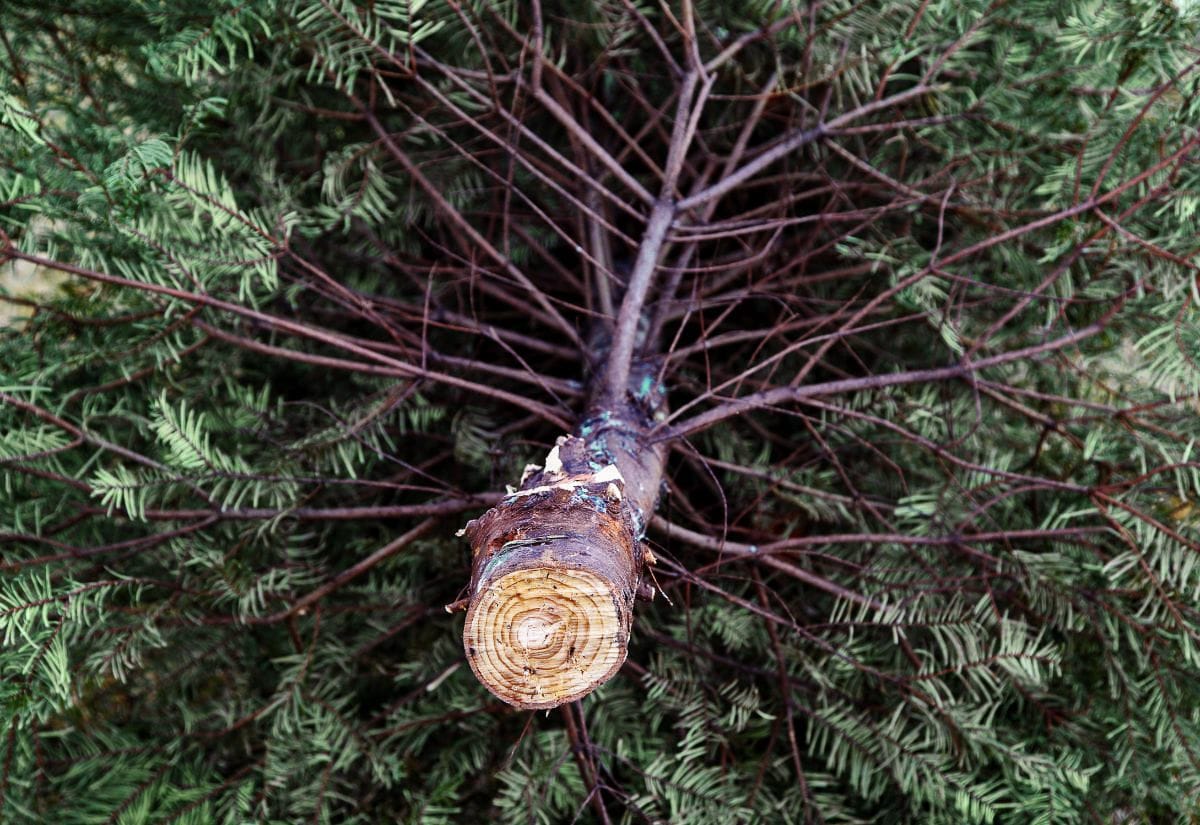
Choose the Right Spot
Your tree’s location can make or break its lifespan.
Keep it:
- Away from fireplaces, radiators, and heating vents.
- Out of direct sunlight or drafty windows.
- In a stable spot where pets and kids can’t bump it.
I’ve learned the hard way that cozy corners near a woodstove may look perfect, but your tree will dry out twice as fast.
Setting Up and Watering Your Tree
Your tree’s basically a giant bouquet. It needs steady water to stay fresh.
Pick a Solid Stand
Skip the flimsy stands. You want one that:
- Holds at least one gallon of water
- Fits your trunk size snugly
- Has a wide, sturdy base to prevent tipping
If you’re looking for one that actually holds plenty of water and keeps the cats mostly out of it, this Christmas tree stand has been a solid pick for us. It’s not fancy, but it works. I just hide ours under a homemade tree skirt, which also helps keep the cats from turning the stand into a drinking fountain. It won’t stop a determined kitten from climbing the tree, though. Still, it’s sturdy enough to keep everything upright, even with a kitten hanging from a branch.
Get It in Water Right Away
As soon as it’s in the stand, fill with room-temperature water. Then check it every day, especially the first week. A tree can drink about a quart per inch of trunk. If the base ever dries out completely, you’ll need to recut the trunk. Once sealed, the tree can’t take in water again.
Do Additives Help?
Everyone’s got a secret recipe (sugar, aspirin, even a splash of bleach), but honestly? I’ve tried them all, and plain water works just fine. Just keep the water level up. That’s what matters.
Daily Care for a Fresh, Fragrant Tree
Think of this as your quick daily checklist:
- Water every day. Ask me how many times I’ve forgotten. Set a reminder on your phone if you need to.
- Keep the lights cool. Switch to LEDs so you’re not adding heat (and they use less power).
- Avoid heavy ornaments. They bend branches and make the tree dry out faster.
- Mist occasionally. If your house is dry, a light mist helps keep needles flexible.
And yes, I talk to my tree while I water. Maybe it’s habit… maybe it helps. I’m not about to question it.
If you’re extending that cozy holiday feeling throughout your home, check out my budget-friendly outdoor homestead Christmas decor ideas for inspiration that looks festive without spending a fortune.
Troubleshooting Common Tree Problems
Even if you’re doing everything right, stuff still happens. Here’s how to fix the most common issues.
Dropping Needles
This is almost always from dehydration. Check that the water level hasn’t dropped below the trunk’s base. If it has, make a fresh cut and refill the stand.
Tree Stopped Drinking
A sealed trunk is usually to blame. Pull the tree out, recut about half an inch, and place it back in water right away.
Brown or Dry Branches
Move it away from heat and cut back on how long the lights are on. Once a branch dries out, there’s really no bringing it back, but keeping up with watering will at least slow down the rest.
Losing That Evergreen Smell
Completely normal as the season goes on. Try lightly misting branches or placing a humidifier nearby. Skip fragrance sprays. They tend to dry the tree out.
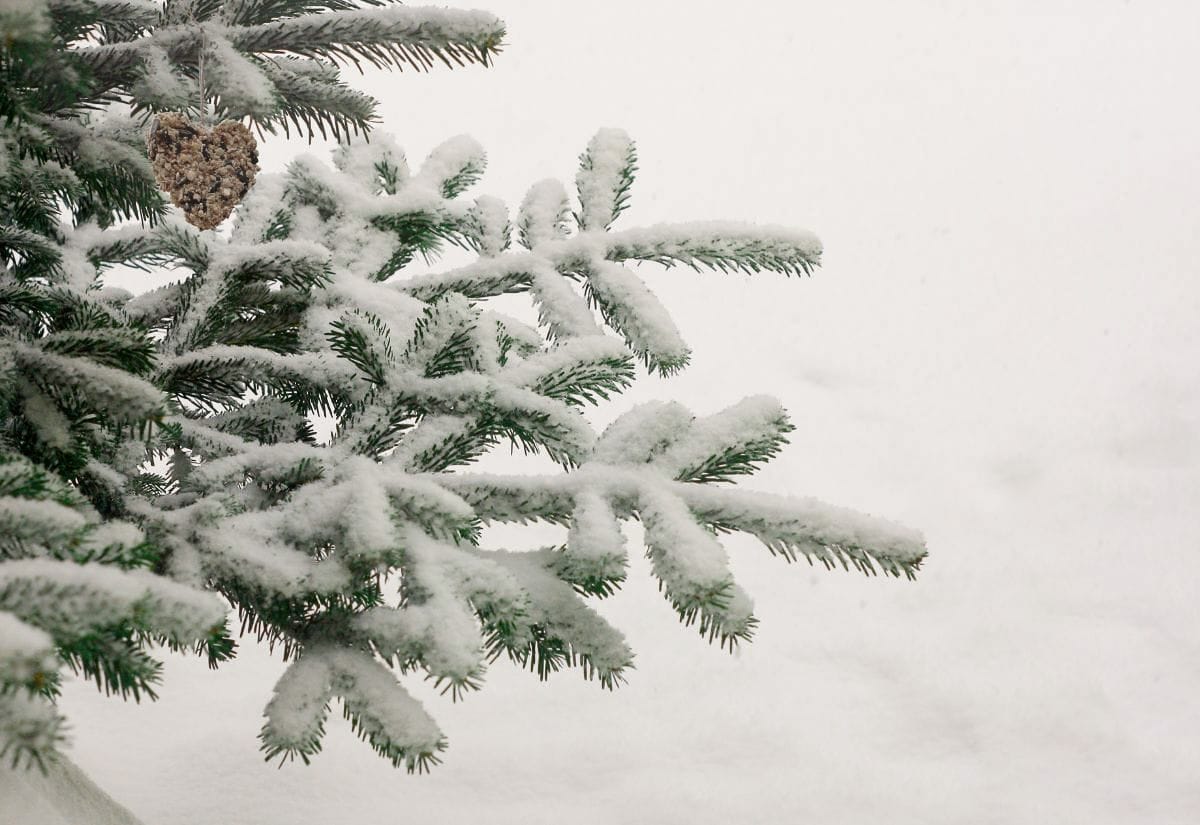
After the Holidays
When the season winds down, I like to carry the tree outside wrapped in a sheet instead of dragging it through the house au naturel (lesson learned). I shake off any loose needles, then let it sit near the garden to dry. Once the ground thaws, it gets chipped for mulch or burned as kindling.
You can also stick it out in the yard as a natural bird perch. Hang some homemade seed ornaments or leftover cranberries, and the chickadees will thank you for it. It’s an easy way to put it to use until spring.
If you hate tossing out beautiful cards each year, these creative ways to upcycle holiday cards will help you keep the memories and reduce waste.
Real-Life Christmas Tree Questions (Answered)
Every year, the same questions come up about watering, freshness, and when it’s time to take the tree down. Let’s clear up a few of the most common ones.
Pin these tree-care tips so you can find them next year.
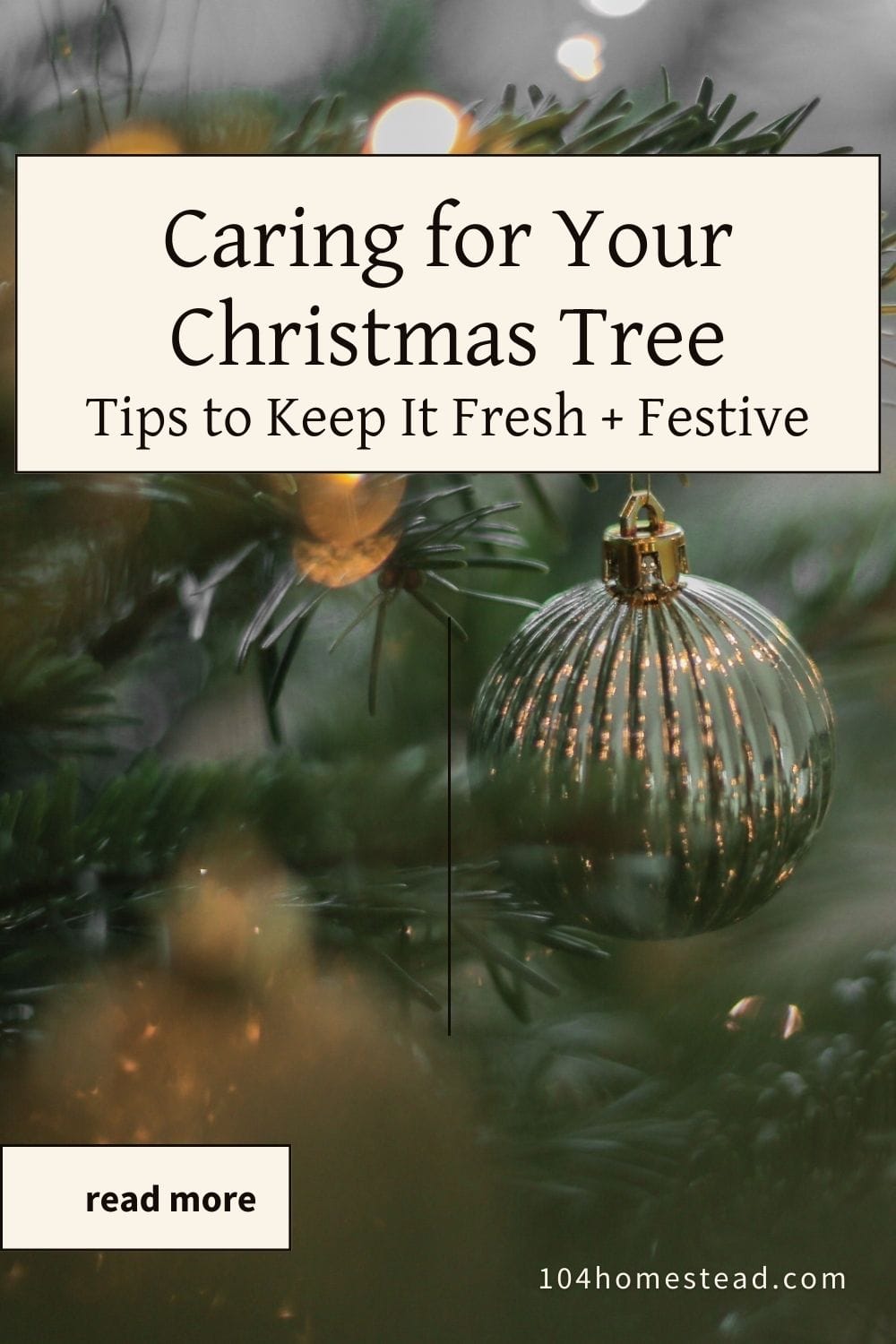
Keeping a real Christmas tree fresh doesn’t take special tricks. Just a little consistency, some cool air, and plenty of water. And if you’re keeping the holiday spirit alive in other ways, you might like my frugal DIY Christmas ideas for the homestead and Christmas cookie collection, two favorites that make December feel festive without overspending.
Over the years, I’ve come to love the daily ritual of checking the stand, rearranging a few ornaments, and breathing in that unmistakable scent.
And when the lights finally come down, I still keep those handmade touches around. A crochet ornament here, an upcycled card garland there. Because honestly, that’s what keeps the season hanging on a little longer for me.
